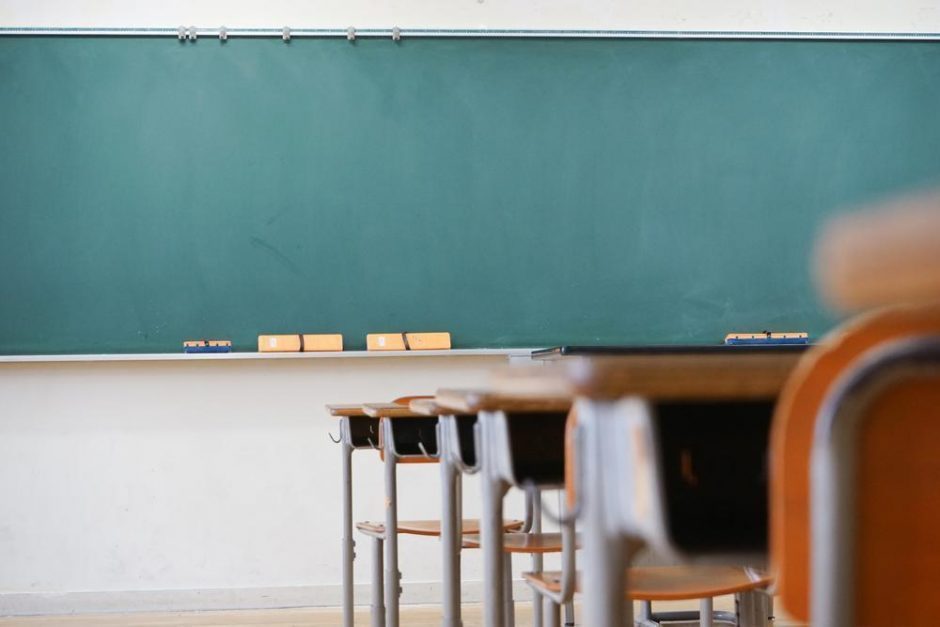

Categories: Fulton Montgomery Schoharie, News
As parents take on new responsibilities overseeing the day-to-day learning of their kids this school year, school districts are looking to bolster those efforts and focus on the mental health of both parent and child.
Schenectady and other districts have offered special parent training in the logistics of the online learning platforms students are using this year, and Saratoga Springs recently hosted an online seminar on “Resilience and Toxic Stress” and how parents can recognize the stress in their children and themselves.
The Broadalbin-Perth Central School District on Thursday night from 6:30 to 7:30 is planning a virtual seminar focused on parents’ own personal self care, using a similar workshop the district’s mental health counselor Julie Lapham gave to teachers and staff at the start of the school year.
The district has been running its Parent University, a series of seminars aimed at supporting parents, for three years now, but it took on special resonance this year as parents have been thrust into an even more central role in their children’s education.
“We know it’s more important this year than ever, because parents aren’t just parents they are helping with education more than ever before,” said Charla Simonson, a school counselor who along with fellow school counselor Jennifer Grimmick, leads the overall Parent University effort.
The parent self-care seminar will focus on providing parents with tools to ensure their own well-being as they work to support their children’s learning. The counselors said the seminar will offer parents exercises and practices that will help them track their own wellness, noting how important it is for their ability to support their students. They said time management and communication are key for both student and parent.
“To be your best parent, you also have to take care of yourself,” Grimmick said.
The pandemic’s enormous disruption to education has heightened the focus on the mental health needs of students and what’s called social-emotional learning in education parlance — efforts to support the mental and physical well being of students as a precondition of rigorous academic learning. The mental health of educators and parents have also taken on a new importance.
Simonson and Grimmick said students and families are facing increased stress and anxiety emanating from a variety of sources. They are grieving all of the activities and traditions they have lost — the missed games, rallies and social interactions with friends — while also fearing the uncertainty of the pandemic and the risk it poses to them and their loved ones, the counselors said.
“They want to be here,” Grimmick said of students who rotate into the high school every other day. “They like the hybrid model, but I think they are still very anxious about (the virus) and worried about infecting someone at home.”
The counselors said the disrupted school environment — including less frequent student interactions and mask-wearing — limit the cues and settings that had previously been the source of educators referring students for additional mental health support from a counselor or psychologist.
Amy Molloy, who leads the School Mental Health Resource and Training Center run by the Mental Health Association of New York State, said the pandemic has shined a bright light on the importance of mental health for all involved in the education system. But new stressors have also piled up on students, parents and educators — driven by ambivalence about the future.
“Part of it is the unknown, the uncertainty,” Molloy said of what is driving the increase in anxiety.
While some of the stressors on the education system have lifted, particularly the initial hurdles of welcoming students back to a school building, the long-term strain of the safety protocols, limited in-person instruction and canceled events will continue for months and years.
Molloy said she thinks that educators and students have stepped up and complied with new protocols and worked to make the best of the limitations, while also emphasizing the importance of sustaining that compliance in the long run. She highlighted the approaching flu season and the similarity of flu and COVID-19 symptoms as an additional source of anxiety starting to ramp up in schools.
“It’s natural that we would get to a point of, ‘OK, enough,’ ” Molloy said of adhering to the various health protocols in place in schools. “So sustaining it is going to take a little extra willpower.”
She said families should focus on consistent routines, not only having kids wake up at the same time each day and study in the same space, but also making sure that they exercise regularly and eat well. She said parents should seek to set boundaries with their kids while also maintaining expectations that the student is responsible for the school work; she also said parents should listen to their students about how they can better focus on their school work. Parents should also go easy on themselves, she said.
“Also, parents should know they don’t have to have all the answers,” Molloy said. “We are all still trying to figure it out.”
More: Everything new from The Daily Gazette Wednesday, Oct. 14